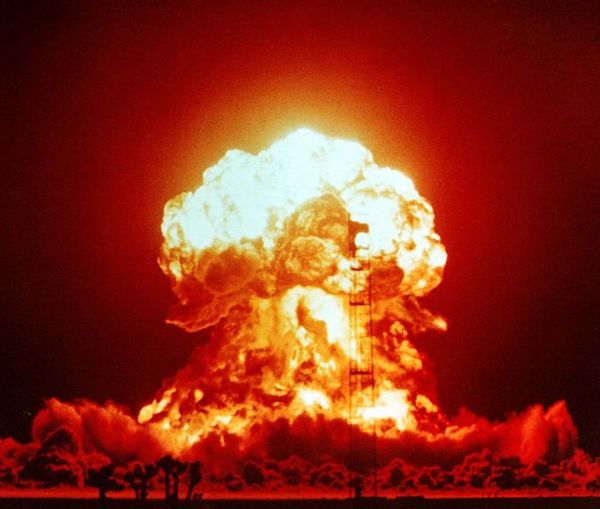World Science Festival published a two-part article about the Manhattan Project. The first part talked about
the science of the atom bomb.
Today, they look at the ethics of the Manhattan Project, nuclear
weapons, and the nuclear power industry that grew out of it. In the
1940s, those who worked to develop the bomb had few, if any, qualms
about what they were doing. After all, they were in a World War that
dragged on for years, and their aim was to end it.
Was
dropping atomic bombs on Japan really necessary to end the war? The
debate may never end. The earliest version of the story told in the West
was that the bombings of Nagasaki and Hiroshima were the final straws
for Japan, and averted what would have been a costly ground invasion by
the Allies. In the 1960s, another group of historians began arguing that
Japan was already about to surrender before the bombs were dropped, and
the mushroom clouds were instead meant by U.S. President Harry S.
Truman to intimidate America’s friends of convenience in the U.S.S.R.
Tsuyoshi Hasegawa, a University of California, Santa Barbara historian,
offers a third explanation: It was the Soviets’ declaration of war that
prompted Japan to bend, and surrendering to America was the best way for
the nation to hold onto its lands and maintain the position of the
Imperial family.
Whether or not the bomb was a deciding factor in
the end of World War II, the sheer unprecedented power of the bomb
planted doubts in minds at the highest levels of the Manhattan Project.
J. Robert Oppenheimer, for one, said that Hiroshima and Nagasaki did not
weigh on his conscience personally, but that he did sense a sea change
in science, and the world at large. “In some sort of crude sense which
no vulgarity, no humor, no overstatements can quite extinguish,”
Oppenheimer said in a 1947 lecture, “the physicists have known sin; and
this is a knowledge which they cannot lose.”
Following
the war, nuclear bomb tests continued, and the technology was developed
to use for power generation. But nuclear power generation may still
prove to be more dangerous than bombs.
Read the rest of the story at World Science Festival.


No comments:
Post a Comment